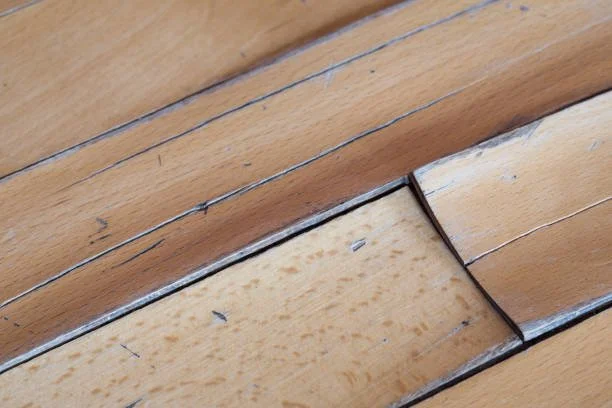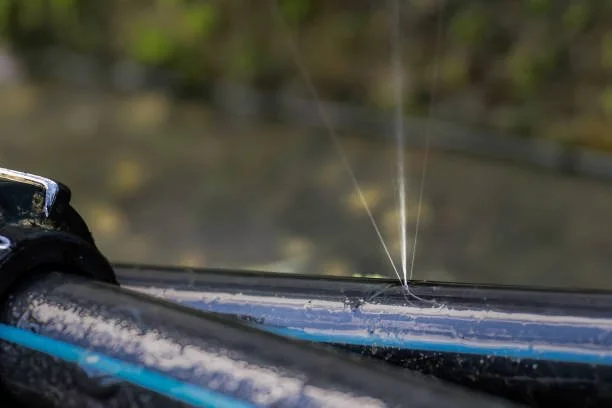Everything You Need to Know About Slab Leaks
By clicking on this article, you are taking a proactive first step to address a common issue many homeowners face: slab leaks.
We are happy to provide you over 30-year’s worth of plumbing knowledge from the owner of our family-run business, Mark Mestaz, so that you may feel more confident when addressing a potential slab leak in your home.
Here is everything homeowners need to know about slab leaks!
How do I know if I have a slab leak?
Here are a handful of key signs that could indicate you have a slab leak.
Your water bill is high that month.
There are warm spots on your floor (if it is a hot-side slab leak).
You hear a hissing sound close to the wall.
You see your floor is buckling, warping, or cupping or that it is squishy.
You see water damage on your drywall close to the floor (i.e. paint peeling, cracking, discoloration).
If the garage is the lowest point in your home, you may see water flowing on the concrete.
Because slab leaks are so low to the ground, you may see water coming out of your weep hole along the outside stucco of your home.
If you notice one or more of these signs, you may have a slab leak that needs to be quickly addressed before water damage worsens. Slab leaks left unaddressed will inevitably lead to mold damage, meaning you and your loved ones are at risk of experiencing mold-related symptoms. A few of these symptoms can include headaches, dizziness, and chronic coughing— the young and elderly are especially at risk. Click HERE to learn more about mold damage.
Next, let's break down what slab leaks are in order to better understand this common household issue.
What are slab leaks?
Slab leaks are one of the biggest causes of water damage in homes, and they can also cause the MOST damage. Understanding what they are is fundamental for any homeowner, regardless of whether or not their home has a slab leak.
To begin, homeowners should understand that all throughout a house there are copper water supply lines that are incased in the home’s concrete foundation. These copper water supply lines feed all the fixtures at the ground level. Slab leaks are copper water supply lines that leak in the concrete foundation. The reason why they cause so much water damage is because the copper water line is pressurized, feeding the leak 24/7.
The majority of time a homeowner is completely unaware this is happening! Overtime, the concrete foundation will get hairline fractures. As the leak continues, the water follows along these hairline fractures, spreading throughout the house.
Remember, water follows the path of least resistance, meaning that just because a slab leak occurs on one side of your home does not mean that water damage is isolated to that spot. Rather, signs of water damage can appear in other spots of your home because water has traveled there.
Next, you must learn about your home’s foundation.
To better understand slab leaks, it is vital to understand your home’s foundation.
There are two different types of homes: ones with post-tension cables and ones without. The majority of homes have a post-tension slab foundation. In a post-tension foundation, there are cables that are highly tensioned. They help support the home’s foundation and keep the home stabilized as natural shifting in the earth occurs. They also limit cracking. In a regular concrete foundation home there are no post-tension cables, but concrete foundations are nonetheless integral for a home’s stability and structure.
A person should never cut, jackhammer, or core these foundations. A cable may be hit and cause severe damage to your home— potentially harming or killing someone. It can also weaken the integrity of the home’s foundation, because the foundation is the main support structure for the entire house. If the foundation is weakened, your home is also weakened.
What causes slab leaks?
Here is an in-depth explanation of what causes slab leaks
When a city treats their water with chemicals at their city’s water treatment sites, the water has a specific salinity to ensure its quality. When that treated water comes into contact with a home’s copper pipes, electrolysis occurs. Hard water deposits begin to form, often getting stuck on the copper pipes over time. These hard water deposits inevitably become corrosive to the copper pipe, causing a small pinhole in the pipe. This pinhole begins to leak outside the copper pipe and into its surrounding areas, such as a home’s concrete foundation, causing concrete hairline fractures which lead to water damage.
Most of the time slab leaks take place on the hot-side of a house. This is due to a chemical reaction occurring when the treated hot water is being dumped into a homeowner’s water heater tank. The chemical reaction creates a thick, clear, and gooey substance that calcifies at the bottom of water heaters. This water is then pumped throughout the hot-side copper water pipes, leading to pinhole leaks in the pipes that cause slab leaks.
What do I do if I have a slab leak?
If you suspect you have a slab leak, you should immediately call a licensed and certified plumber to address the leak. Once the leak is fixed, you will need a restoration company— such as All Phases and Sons Restoration— to properly begin restoring your home. Restoration is vitally important, because any water damage caused by the slab leak needs to be thoroughly dried to prohibit mold growth. If water damage is not 100% thoroughly dried, mold growth is inevitable.
It is a common misconception that homeowners can dry water damage themself by putting a fan near the affected areas. It is never recommended to try and restore water damage yourself. An expert water restoration company who has industrial quality air movers and dehumidifiers are needed to ensure that no dampness remains in your home, because dampness equals mold growth.
Are slab leaks covered by insurance?
Most often insurance companies will cover the repair of the slab leak by a plumber. They also frequently cover a water damage restoration company to properly restore a home.
Nonetheless, it is important to note that every homeowner’s policy is different. It is recommended you speak with your insurance provider about any questions regarding your insurance policy.
Click HERE to learn more about insurance coverage.
In conclusion…
We hope you have a better understanding of slab leaks, their causes, and the steps you need to take to address one in your home. If you would like to speak to a professional water restoration company to assist you if you live in the southern Orange County area, feel free to contact us HERE.
All Phases and Sons Restoration extends our heartfelt hopes that you, your loved ones, and your home remain safe and healthy!



